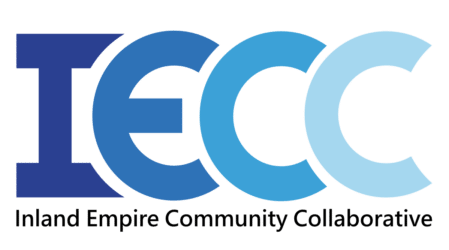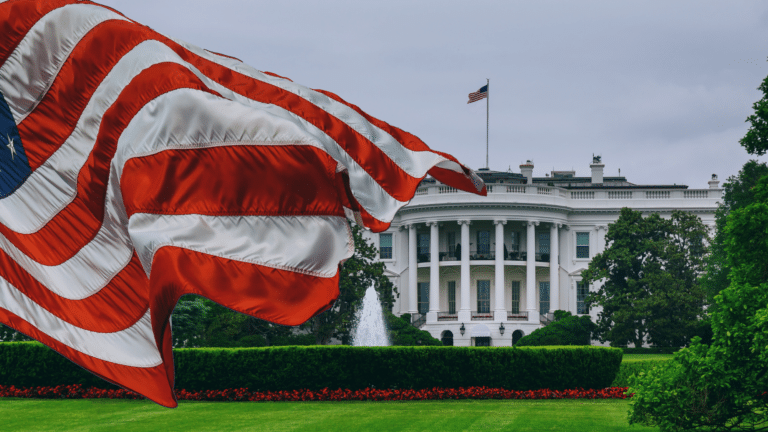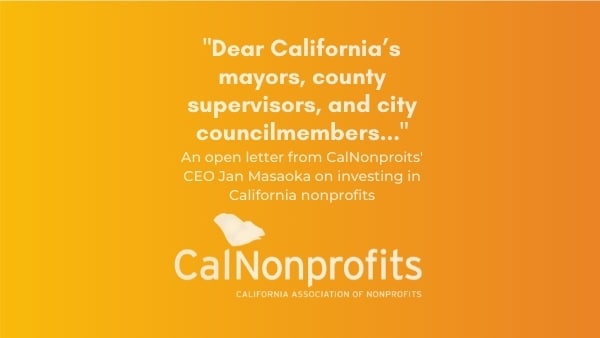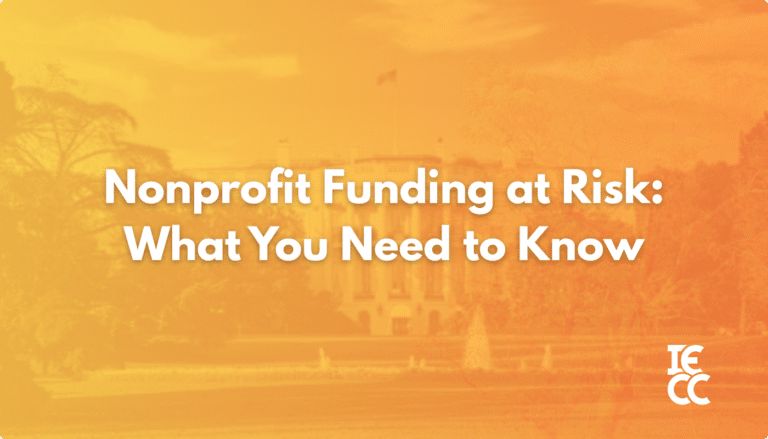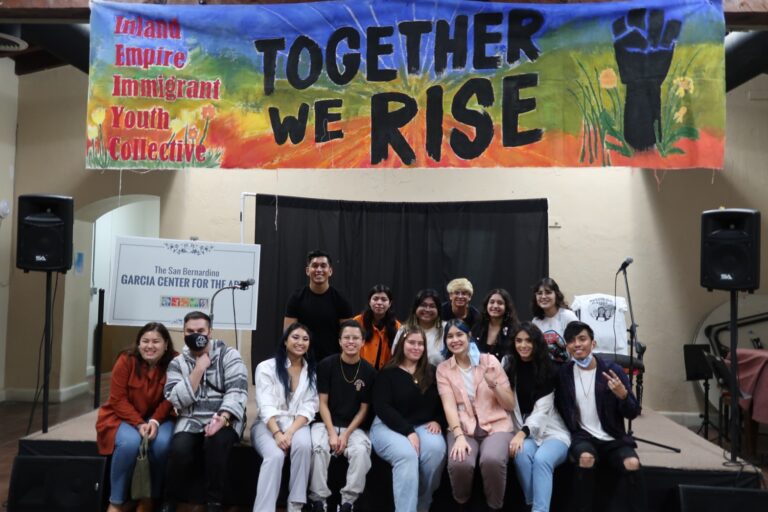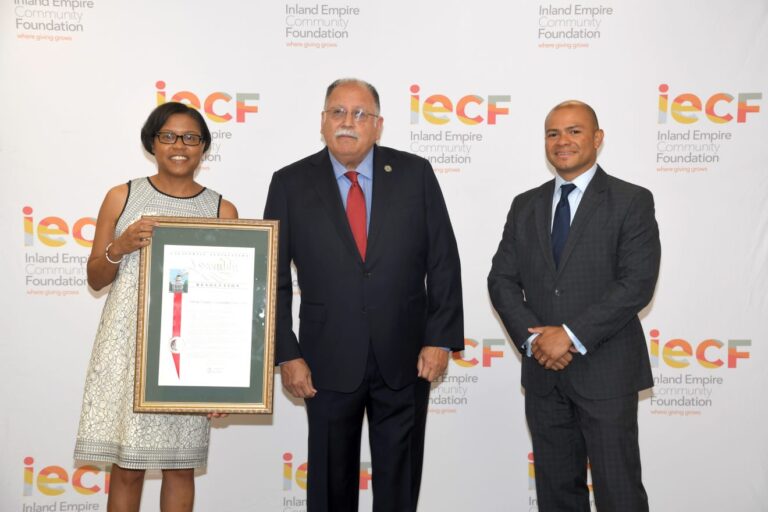Senate Bill 1246 (Limon) – California Prompt Payment Act: Nonprofit Organizations Support
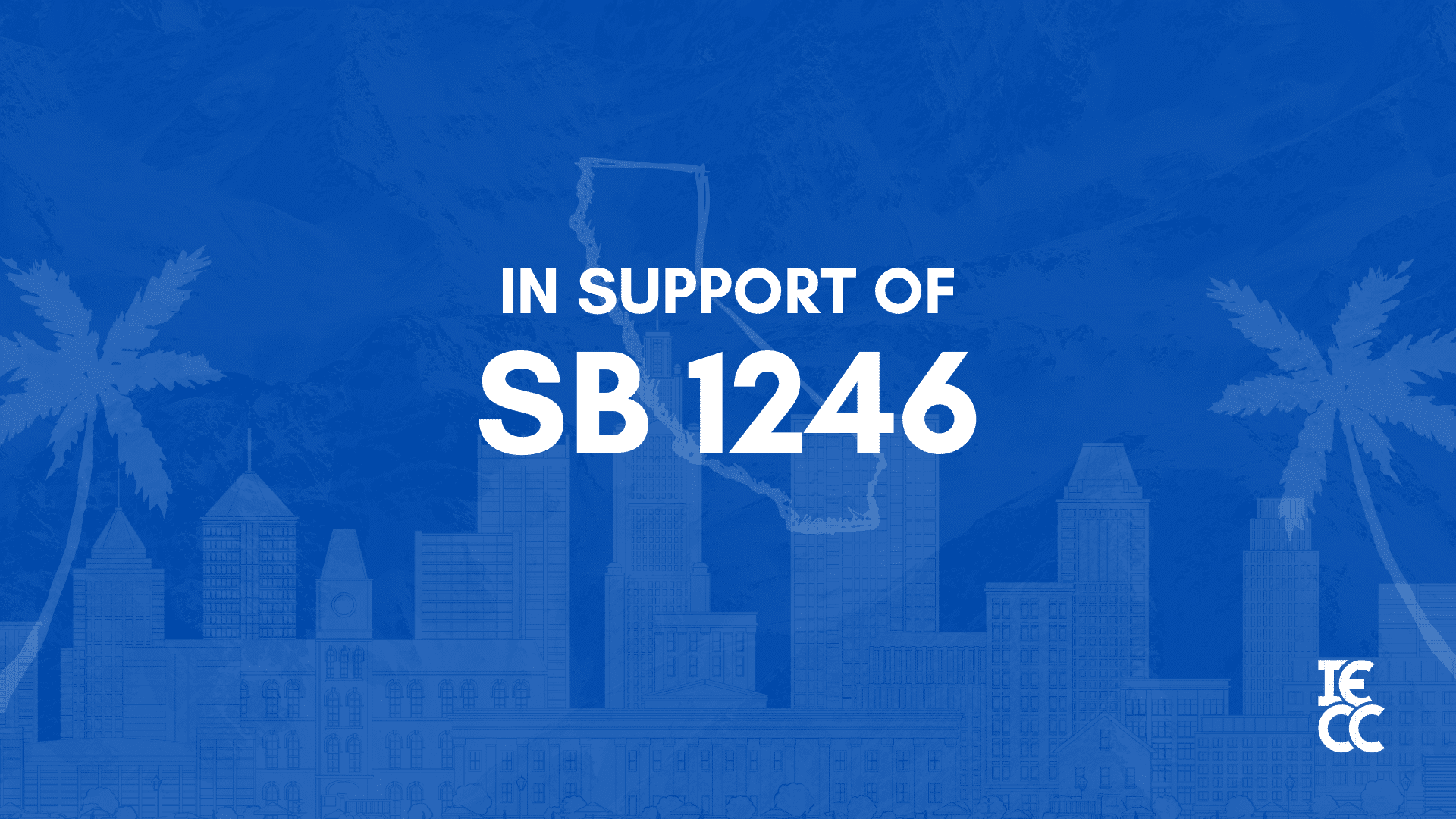
On behalf of the undersigned organizations, we express our strong support for Senate Bill 1246, which updates the state’s Prompt Payment Act to increase equity and fairness for nonprofits by expanding it to cover all state contracts with nonprofits, setting a discrepancy amount to avoid delayed payment while trivial disputes are resolved, removing the existing eligibility cap on nonprofit contracts, and including any penalties paid to nonprofits in the required annual report. We appreciate your efforts to advance similar legislation (SB 557) last year to the Governor’s desk, and hope we are collectively successful with this effort in 2024.
Background
In October 2022, more than 550 nonprofit, philanthropic, and community leaders representing organizations headquartered in 41 counties wrote to Governor Newsom and other state leaders requesting improvements to state contracting processes. These changes would bolster the nonprofit sector, on which the state relies, and improve outcomes for the communities these nonprofits serve. Members of the driving force behind this letter – the California Coalition on Government Contracting – came together to share ideas for improving the ways nonprofits and the state work together to use taxpayer dollars equitably, fairly, and efficiently in service of our state’s health, human services, environmental, education, and other vital priorities.
Following delivery of this letter, our coalition members met with state leaders, including senior members of the Administration, to request engagement and partnership. We deeply appreciated the mention in the “A” pages of in the Governor’s proposed FY 2023-24 budget to: “consider changes to address issues within the nonprofit sector to support the sector’s ability to deliver on meeting goals in state programs.” (p. 110)
Championed by six legislators, the ideas formed a package of bills we have advanced as the California Nonprofit Equity Initiative. Our organizations, along with more than 500 other nonprofit and community leaders, are supporting these bills to level the playing field for nonprofits. Improving how state government contracts with nonprofits is a question of equity for our most vulnerable communities and for the nonprofits that serve them. Nonprofits are a powerful force for equity. This initiative continues this year with your legislation.
The state relies heavily on nonprofits to help put critical policies into action, partnering with community organizations to help the homeless, build affordable housing, respond to the impacts of climate change, support survivors of domestic violence, and otherwise improve the lives of vulnerable members of our communities in countless ways. To succeed, nonprofits need contracting terms that set us up to partner effectively. SB 1246 responds to the impact the pandemic has had on our communities, the need to address equity and inequality in access to state resources, and the imperative to support strong and varied community-based organizations to address increased need.
All nonprofit partners of the state deserve prompt payment.
SB 1246 levels the playing field for nonprofits regarding prompt payment on grants and contracts. Too many nonprofit reimbursement requests are delayed because there is no incentive to prioritize them, disadvantaging organizations that are working to support California communities and growing our economy.
When the state acts in good faith and pays nonprofit partners’ invoices promptly, it supports a robust supply chain of providers. Many nonprofits consistently carry millions of dollars in delinquent Accounts Receivable from the State. The costs of borrowing funds to allow operations to continue must come from indirect costs or loans that often carry high interest rates.
The Little Hoover Commission confirms these realities, writing “Grant recipients face a straightforward problem: If service providers immediately and accurately complete their reimbursement request, and the state meets all of its statutory timelines in processing reimbursements, then service providers wait about 79 days from Day 1 of providing the service until receiving reimbursement. This assumes service providers complete their paperwork immediately after the 30-day reporting period ends and pay for overnight delivery to Cal OES. If service providers need more than a day to complete their request, the wait can be up to around 109 days between Day 1 of providing services and reimbursement – providing everything runs smoothly.”
For example, the California Child Care Resource and Referral Network has annual revenues of approximately $7 million and carries $2.7 million — almost half their income – in receivables from the State of California. Carrying 40 percent of income as a receivable would make any business struggle.
It can take anywhere from 30 days to eight months for the state to remit payment on contracts after nonprofits submit invoices. One nonprofit that contracts with the Department of Corrections and Rehabilitation typically waits 45-60 days after the end of the month (arrears) to be paid. Other nonprofits report waiting up to ten months for payment on undisputed invoices. Many organizations have experienced delays in payments resulting from minor discrepancies, including rounding up or down by a single dime. As a result, payments to nonprofit organizations are often delayed due to minor discrepancies. That’s why SB 1246 proposes to require prompt payment unless the discrepancy is greater than $250 or five percent of the invoice, whichever is smaller. The state can still pursue the discrepancy but cannot refuse to pay the invoice on time over such small amounts.
SB 1246 is a no-nonsense, no regrets measure that simply places nonprofits on equal footing with the rest of California’s grant and contract partners.
Exemptions in the Prompt Payment Act statute place an undue financial burden on the organizations that can least afford it – in particular, smaller nonprofits and those serving disadvantaged communities are disproportionately harmed by these practices. Many of these nonprofits have only 30 days of cash on hand.
SB 1246 course-corrects for the inexplicable language set in statute that specifically disadvantages nonprofits from receiving penalty payments when appropriate and clarifies key definitions for “grants” and “nonprofit organizations.” Consistent with the way Governor Newsom described in his September 2022 Executive Order directing state agencies and departments to take additional actions to embed equity analysis and consideration in their missions, policies, and practices, SB 1246 “will help “improve outcomes and deliver better services by making its procurement policies simpler, faster, and more human-centered for buyers and vendor partners.”
SB 1246 will save the state money because spending weeks resolving a discrepancy of less than five cents (yes, truly!) is an unnecessary use of valuable government staff time that does not significantly increase accountability. If the state pays invoices on time, they will have no additional costs.
Enacting SB 1246 will strengthen the essential partnership between the state and nonprofits and our mutual efforts to deliver the highest quality services to the people of California.
We thank you for authoring SB 1246 and stand in strong support.
Sincerely,
The California Coalition on Government Contracting


